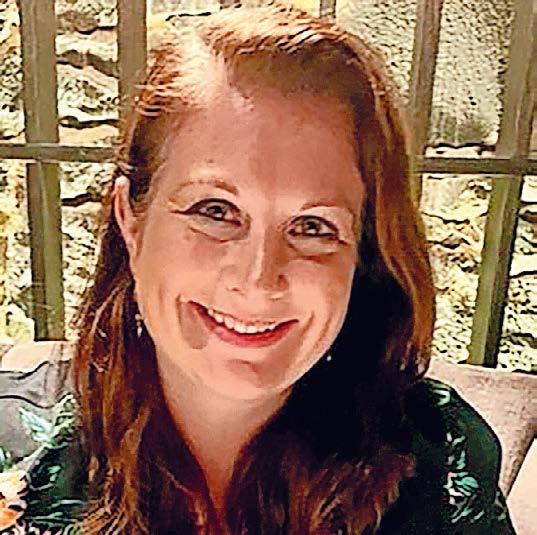
3 minute read
Bringing gender equality in from the cold
Increasingly, women are at the forefront of Australia’s intelligence effort.
By BARBARA COSSON
As a woman who admits to being late to feminism, Rachel Noble, director-general of the Australian Signals Directorate (ASD), sees her role as an opportunity to raise awareness about gender inequality.
Noble is the first female head of a statutory intelligence agency in Australia. Last month, she was joined by Kerrie Hartland, the newly appointed director-general of the Australian Secret Intelligence Service (ASIS).
It is the first time that women have filled the top positions in two of the nation’s frontline spy agencies and comes at a time of unparalleled global threats that include an intensifying battle in cyberspace.
Noble’s journey to feminism has been a slow burn. She has previously said that her mother was probably more of a feminist than she and her sister, as they found the concept hard to relate to.
There was not any one thing that triggered her feminist awakening.
“In a lot of my career, I’ve been in meeting rooms where I’m the only woman,” she says. “I think as I got more senior, I could see that there was a network of men who were more likely to be socially connected to each other as well as professionally.”
Noble realised that as an outsider she had to “work out how to become involved in that network or at least understand it enough to still be able to influence outcomes”.
She is cognisant, though, of the important role that men play in achieving gender equality. Indeed, most of her mentors along her career journey have been men.
“Frankly, it’s really those men who have helped pave the way because they held the more senior roles to then allow women like me to find our space and spread our arms out,” she says.
At the same time, she believes many men still need to be “liberated”.
“There’s some really scary data that shows if a man in today’s society says, ‘Hey boss, I need to pick my kids up from school three days a week, so if you wouldn’t mind, I would like to leave a bit earlier, but I’ll make up my time later,’ he is more likely to suffer career harm as a consequence than a woman.”
According to Noble, it’s important to enable the sharing of care as this is a task that falls mostly to women and can impact their career progression and long-term financial security.
She describes a culture of flexibility at ASD, which collects foreign signals intelligence and monitors information security on behalf of the federal government, that she says encourages involved fatherhood. “If it’s dad asking, dad gets.”
A 25-year public service veteran, Noble previously headed the Australian Cyber Security Centre where she was responsible for leading the nation’s defence against cybersecurity threats and incidents. She took on the top role at ASD in 2020.
Noble is clearly proud of the agency’s gender equity initiatives, which include a parent’s day, in which those on leave and caring for children at home are encouraged to remain connected by coming into work with their children.
“It’s the most hilarious thing when you go down to address a group of staff with babies screaming and little toddlers running around,” she says. While ASD is doing better than many organisations when it comes to gender balance, Noble says they are working hard to encourage more young women into cybersecurity roles. About 40 per cent of the directorate’s workforce is female, with a conscious effort being made to improve further the representation of women. This includes a range of initiatives such as sponsoring the Australian Women in Security Network, the Women in Cyber Mentoring program and the Girl’s Programming Network, a school program aimed at girls in years 4 to 12.
“Fifty-two per cent of people who joined us this financial year were female,” says Noble. “So, that is more reflective of the population.”
Her message to young women is not to believe stereotypes, which tend to perpetuate the myth of cybersecurity roles requiring workers to be locked in a room tethered to their computers with little to no engagement with others.
“Find out for yourself and come and meet some of the amazing women who are working in ASD who can tell you their stories about what their day-to-day life is like,” she says. “You might find that it is way cooler and way more fun than you ever dreamed.”









